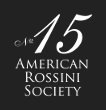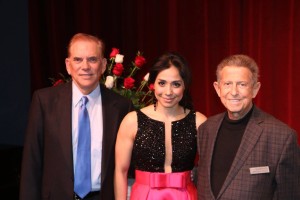Rossini’s Pandora’s Box
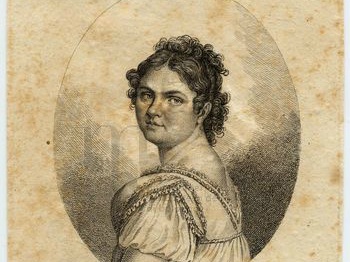
Che vuol cantare?
During this month we celebrate the 200th anniversary of Rossini’s most popular opera “Il Barbiere di Siviglia”. We invite you to join in the celebration by sharing your thoughts on “trunk arias”, so called because they were reportedly carried around in a singer’s trunk as they traveled from theater to theater. No place has this been more common than the lesson scene of “Barbiere”, but then you could say, Rossini invited it with the opening line.
The tradition of replacing Rossini’s “Contro un core” with another aria ( often to showcase the talents of the singer) began in fact with the original Rosina, Geltrude Righetti-Giorgi, (pictured) although she didn’t do it at the premire.
Since then there have been all sorts of substitutions. Marilyn Horne and Cecilia Bartoli in recent times have substituted “Tanti affetti” from Rossini’s “La Donna Del Lago”
One favorite insertion has been The Nightingale by Alyabyev
The song became widely known after having been the substitution preferred by Pauline Viardot, Adelina Patti and Marcella Sembrich.
Somehow “Contro un core” just seems to work best because it is woven into the fabric of the scene. But clearly insertions have their place,too.
So, to help celebrate the anniversary of “Il Barbiere di Siviglia” we invite you to share you favorite insertion and either submit it on our Facebook Page or mail it to info@RossiniAmerica.org.
Change of dates for two ROF 2016 performances
We will have more about this summer’s ROF soon, but for those who are already looking at the calendar, ROF has just announced that the Florez gala and the final performance of “Ciro in Babylonia” have switched dates. Florez will be on August 19th and the final Ciro on August 20th! Start planning now!
From HMV to Youtube. Interview with Coloraturafan
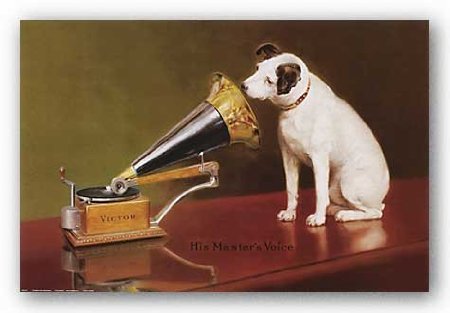
Our grandparents probably “went to the opera” via HMV. Today there are many options, but probably nothing with a greater impact than Youtube. One of the most avid contributors is Coloraturafan who has single-handedly brought a great variety of artists and works to our attention. It is hard to imagine the amount of work this represents and clearly must come from someone with an enormous devotion to opera
Dillon Haynes aka Coloraturafan, kindly agreed to answer some of our questions which we share with you below.
Q.How did you become passionate about opera? Did you have any specific musical training?
I have always had a strong passion music. I started musical training at age six with violin. I was involved with youth orchestra and high school band, playing a variety of instruments, mainly brass. I taught myself piano, and that is really my favorite instrument. I began composing music at an early age also, completing my first opera when I was 18. I credit my grandmother (originally from Vienna) with taking me to see all different forms of arts, symphonies, operas, ballets, musicals while I was young.
Q. The on-line community has mushroomed over the last decade, but your contributions are still valued in spite of all the new options available. Do you have any thoughts on why that might be?
This is a good question. I am not exactly sure. Certainly there is no shortage of contributions on YouTube and other social media venues. I try to keep things interesting and post more than just an aria from opera “A” and a duet from opera “B”. I make compilations, and mash things up a little. I have always wanted to expose people to new things in opera, not just listen to the same old things over and over. Anyone can post a clip of Callas singing Tosca or Netrebko singing Il Trovatore, and the videos will be very popular. But if you post a clip of 25 sopranos singing the Norma high D, you are going to get the Callas obsessed or Sutherland obsessed fans to listen to new voices. And that has always been a primary goal of my channel.
Q. You work very hard and selflessly to bring opera to people who do not otherwise have a chance to hear the great selections you post. Are people good about expressing their appreciation?
Yes, for the most part, I have been very well received. Of course, there are some people that don’t care for me. But that is life. Sometimes people forget that this is a hobby for me, not my job. I get a lot of messages, more so in the past, wanting me to post this or that. In the end, if I am able I try to honor the requests I receive.
Q. There is a lot of concern about “aging” opera audiences and the decline of attendance numbers in general. There are probably many reasons for this ( if it is true) but certainly the loss of access ( less opera on TV, radio, etc) has to play a role. What do you think?
I think there is always more that can be done to improve opera attendance. And I certainly agree we should be focusing on the younger generation in this respect. But we have to understand that the world is changing, people are becoming more reliant on smart phones and streaming TV. Munich, Brussels and a few other opera companies are starting to offer free streaming opera events. I think that is a great way to get the attention of the younger generation. It would be nice to see some American opera companies try free live streaming events also. The MET offers the live in HD, but I don’t see that as really accessing the younger generations. YouTube does go a long way in offering a variety of free outlets, but many times the videos are removed because of copyright issues. So in the end, YouTube and uses like myself can only accomplish so much.
Q Record companies used to promote recordings more than they do today, with the exception of “block-buster” artists. Do you see Youtube as helping to take up the slack?
I think so. But I also think that YouTube is so oversaturated that a lot of great singers get lost in the mix. As I said, it has always been a primary goal of my channel to promote more than just the super star singers.
Q. Your series “opera in 10 minutes” has been so successful in helping people become acquainted with less familiar works. Do you plan on continuing this series? Even for people who know the opera well, it can be a surprise and delight to see the excerpts you have chosen to illustrate the plots. Are your choices simply those you like best?
Well the Opera in 10 series was unfortunately done early on. I say that because the quality of these clips is really poor. I have always said that I am an opera fan, and not a video editor. Over the years, however, I have learned some very basic things. So looking back on that collection I am disappointed that I didn’t put more effort into the editing. With that said, my Coloraturafan account was closed a few years back, and I took the opportunity to revisit the series; this time taking advantage of better quality video editing and the newer 15 minute video allowance. I had completed Rossini and Verdi when that account was closed, and most of the work was lost.
You can see some of what was salvaged in this compilation
https://youtu.be/1eUueEx0Ha4
Q. Artists seem to appreciate your efforts. Is the feed-back you get from them mostly positive?
Generally speaking, most artists are very appreciative of the video postings. There have been many occasions when I get a message from an artist who will ask if I remove the video for whatever reason. Of course, I am quick to comply. But I have had a few run ins with singers who are very upset, and I have received some very direct messages from them.
Q. Your interviews with singers are also wonderful. They seem at ease and speak freely. How is the interview process for you?
My interview project is still fairly new. I am still getting adjusted to it myself. I have done four interviews so far, and one of them had to be scrapped due to technical issues. I think I am still learning on how best to format the interviews so that they are engaging and entertaining. I have received a lot of feedback from subscribers, and it helps me put things into perspective.
Before I start the interview I go over what my purpose is with the artist. I tell them that the interview is really casual and laid back and that we can edit anything out if they aren’t pleased with it. I also tell them that we are looking to make opera singers more approachable and show them more as people. So basically, just tell them to be themselves and have fun. So far this has worked well.
Q. Are there any specific performances of the past that you wish had been available for posting on Youtube?
I wish everything was available. So that is not an easy question to answer.
Q. What do you think makes a great Rossini singer?
For myself, Rossini comes alive when a singer is able to find a way to characterize the coloratura in a convincing way. Rossini asks a lot of his singers with all of the black notes, but they all have meaning and purpose and they should serve more than pure vocal brilliance.
Q. Of course, being Rossinians we would be remiss in not asking you if there is something special about Rossini that appeals to you!
His music speaks to me like no other. I can listen to Rossini all day and never get bored. From the fast paced cadenzas to the slow flowing cantilenas. I could listen to Rossini all day and never be bored.
Q. How many operas do you typically attend in a year?
I usually travel to Europe about four times a year, usually seeing around 9-10 operas per trip. So generally I see an average of 40 live operas a year.
Q. If you could interview any singer of the past ( someone that nobody alive today would have heard) who would it be, and what would you ask?
It would be a tie, between Rubini and Pasta. Their voices inspired great composers to write some of my favorite music, and I am sure that either singer would have so much to say about the art of singing.
Our interview with Rockwell Blake
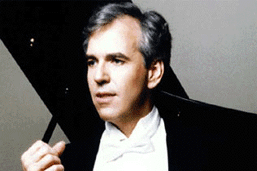
One of the most influential artists of the recent Rossini revival, Rockwell Blake, continues to teach,inspire, and serve the community which loves him so well. In addition to being an honorary board member of the Friends of the Rossini Opera Festival, Mr. Blake was generous enough with his time to answer a few questions following his much appreciated service as a judge of the first Rossini competition in the US. We will have more about Mr. Blake soon, but we wanted to share this with you on his birthday… Jan 10. Many happy returns, Maestro!
Q. You have recently finished being a judge at the first Rossini competition in the US sponsored by the Palm Springs Opera Guild. What was that like?
It is an extension of the education I have been absorbing since my voice teacher, Renata Carisio Booth, started training me for the vocal life. I listened to and learned from her, and I listened and learned all my professional life. Being in the company of music/Opera/Rossini lovers is yet more education, and the parade of talented young people who sang for the competition was Post Grad level tutoring.
Q. The arrangers and participants of the competition were thrilled to have your participation. Were competitions important to your own career?
Every time I put my name in the hat for a competition something good came of it. The contacts I made were extremely helpful as my career carried me along. The monetary gain was always less important to me than the good word and will that was disseminated by those who discovered me among the contestants.
Q. One of the purposes was to increase the popularity of Rossini in the US by encouraging singers to study this repertory. Why do you think Rossini is not more popular, or rather popular beyond Barbieri, and Cenerentola?
This answer is a subchapter in the crisis seen by some industry observers. I often say that “Il Barbiere” is indestructible, but “Cenerentola” is vulnerable. I used to lament that Rossini’s operas were underappreciated because they were most often done with unremarkable performers. I have seen performances of “Il Barbiere” directed and sung terribly, but still survived by virtue of the rock solid theatricality of the piece. I never saw a performance of this Opera that didn’t satisfy the audience. Every other Opera Rossini wrote needs a lot more musical and vocal fuel to keep the audience satisfied. My old adage was: If a Rossini Opera fails to please, it was performed badly. My new adage is: If you are going to perform a Rossini Opera badly, please choose “Il Barbiere”. It will survive.
Q. The obvious question is what led you to becoming an opera singer, and specifically a Rossini specialist?
I was pulled out of a school chorus and made to stand out front and sing a song when I was about 10 years old. I had a blast. The rest is history….. Well, at least, it’s so like yesterday.
Q. What role did your years at the Rossini Opera Festival play in your life? It clearly was important to the life of the Festival
Getting into the inner sanctum of Rossini was not an easy task, and I knew it was where I needed to be. When I was allowed in, I did the best work I could do. The festival kept bringing me back and we grew together. I know that the Art of Opera and the Industry of presenting Opera are much larger than any singer. I like to think I did good things for Opera and for The Festival, but who can say that I was essential? I probably was not. On the other hand, The Festival was an essential magnifying lens that made my work in Pesaro seem very important. I still see benefits coming to me from our collaboration.
Q Do you have a favorite “funny” moment from your performances or rehersals at ROF?
I have lots of favorite stories I tell about my ROF work. Most of them are professional trials, but even they can be fun. At the first musical rehearsal of one of the productions I did for ROF I had one of my greatest trials. Our conductor opened the rehearsal with a little talk to let us know in most certain terms that for his taste we Rossini types didn’t know what we were doing with the Grand Maestro’s music. There were also a few words exchanged in a short discussion that seemed necessary to some of us for clarifying our various opinions which topped off the musicological tension in the air. With the different camps well demarked we turn to our scores. We Rossini types laid hands on well-worn and for one present coffee stained scores. Our conductor placed his two volume Critical Edition full score on the table in front of him. I marveled at how clean his bindings were. This conductor did not, at first glance, inspire one to think of him as fastidious. Anyway, he placed one of these immaculate scores on its spine, strategically placed his thumbs at the middle of the pages and opened it wide. My trial began! I nearly died holding in laughter the likes of which only Paolo Montarsolo or Toto could normally inspire. That act of opening that score caught me completely off guard. There was such a noise; crackles, pops, snaps, tiny glue ripping sounds and a determined rebelliousness in the pages to stay open. We observed a book being opened for the first time ever. I was convinced this conductor had never seen the interior of this Opera. It did occur to me later that he could have used a different set of scores to study, and I may never and truly don’t care to know, but the moment was perfect, and I will never forget it.
Q. Do you think the path to becoming a singer is harder today than in the past, or is it impossible to compare?
Detailed comparison is, in fact, impossible. If from the meaning of “hard” you eliminate all the specific differences between the today and the yesterday world of Opera, I could say that it is equal. With the changes impacting all of the Arts today, the “what it takes” and “how to make” a career has certainly changed. The Opera Industry generally has a new set of requirements that will also change over time. Who knows what will evolve next?
Check out our Youtube channel!!! Icon at bottom of page
Thanks to ROF for providing the initial videos and thanks to two special friends, Peter Brase and Jeffrey Roberts for pointing out that we need to point our visitors in the right direction – bottom of page!!!
Finally, a Rossini competition in the United States

The smiling gentleman is none other than the legendary Rockwell Blake and the woman is Guadalupe Paz, winner of the competition.
Below she is pictured with the “fathers of the competition”, Bruce Johansen and Michael Cressey.
The first ever Rossini competition in the United States was held in California on November 13-14.
The competition was the brain-child of the president, Bruce Johansen, and artistic director, Mick Cressey of the Palm Springs Opera Guild of the Desert.
Some may think this is an unlikely place for such a competition, but both Johansen and Cressey are big Rossini fans, as well as being frequent visitors to the Rossini Opera Festival ( and members of the Friends of the Rossini Opera Festival)
Furthermore, the Guild, ( co-founded in 1968 by Lily Pons) has had a long-standing vocal competition whose winners include many singers with international careers, such as Sondra Radvanovksy and more recently Angela Meade.
The competition came to life as a result of the dynamic enthusiasm of Bruce and Mick along with the encouragement and support of the ROF family. Rockwell Blake, a mainstay of ROF for many years agreed to be a judge, and Alberto Zedda kindly agreed to offer artistic advice. Blake was joined by tenor, Henry Price known to many New York City opera fans.
There were many promising participants, which bodes well for the future of the competition.
The winner was Guadalupe Paz, whose name might be familiar to ROF guests because she was a member of the Accademia Rossiniana in 2008 and appeared in Viaggo a Reims. She will be singing in the first performance ever of Il Viaggio a Reims in Mexico next year.
The Peggy Cravens Rossini award ( named after its generous benefactor) was presented in conjunction with the Guild’s 32nd annual Vocal competition on Sunday, December 6, in Rancho Mirage CA. Among the guests were Valeria Rumori, from the Italian Cultural Institute of Los Angeles.
Bravo to everyone involved in this endeavor, which is a wonderful and auspicious start to the Rossini Project.
Exclusive interview with Daniela Barcellona
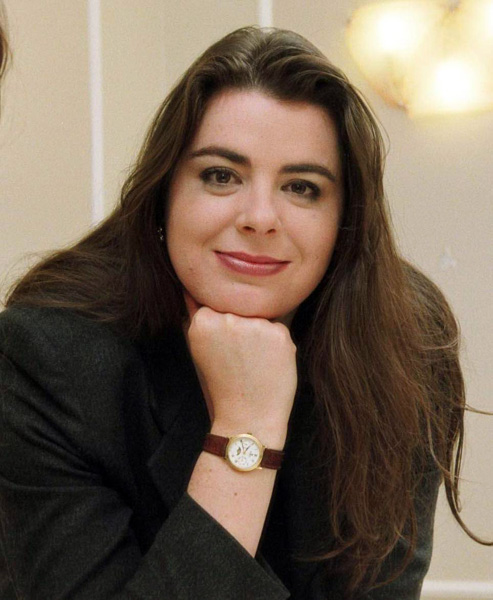
Daniela Barcellona, one of the newest members of the Honorary Board of the Friends of the Rossini Opera Festival, is in New York City to perform Malcom at the Metropolitan Opera’s “La Donna Del Lago”.
She graciously agreed to be interviewed at short notice. We asked her to answer in Italian ( it’s a beautiful language, after all)
The English translation was generously provided shortly after that, by Luca Damaschi,as a gesture of friendship to American Rossini fans.
Q. When and how did you discover that you had an affinity for Rossini?
Non è stata proprio una scoperta immediata. Avevo sempre delle “agilità” piuttosto buone ma non conoscevo né il repertorio né la tecnica corretta per affrontarlo. L’occasione si è presentata quando il mio maestro di canto, Alessandro Vitiello, mi ha proposto, data la mia giovane età, di affrontare lo studio dell’ “Italiana in Algeri”. Oltre le richieste tecniche che il ruolo richiede, mi ha permesso di conoscere un mondo che, per me, era quasi sconosciuto; prima, infatti, vedevo solo l’esteriorità e la spettacolarità del canto rossiniano, non comprendendo ancora l’espressività nascosta dietro le cadenze e le agilità.
A questo sono arrivata gradualmente, soprattutto affrontando il Rossini serio, ed anche grazie all’aiuto del Maestro Gelmetti, uno dei pochissimi interpreti in grado di riconoscere la poetica rossiniana nascosta dietro quello che potrebbe sembrare solamente un artificio vocale, meramente spettacolare e fine a se stesso.
Questa visione mi ha aperto un mondo, facendomi capire che la musica rossiniana, lungi dall’essere una banale dimostrazione di bravura tecnica, era invece fondata sull’espressività e sulle emozioni più intime.
It was not an immediate discovery. I have always had rather good “agilità”, but I did not know nor the repertoire nor the technique to sing it. The occasion arrived when, in consideration of my early age, my singer-teacher, Alessandro Vitiello proposed me to start to study “Italiana in Algeri”. In addition to the techiques that such a role required, that opera made me know a world that was for me almost unknown; before such experience, in fact, I just saw the outward appearance and the spectacularity of the Rossinian singing, as I did not yet understand the expressiveness hidden behind cadenzas and agilità (coloraturas). I gradually arrived at this, in particular by singing the “opera seria” by Rossini. For this I have also to thank Maestro Gelmetti, one of the very rare interpreter able to recognize the Rossinian poetics hidden behind what that could seem a vocal artifice, merely spectacular and end in itself. This vision opened a world to me. It made me understand that the music by Rossini was based on expressiveness and more intimate emotions and was not just a banal demonstration of bravura technique
Q. Did you already know that this was going to be a specialty for you when you attended the Accademia Rossinia?
Assolutamente no. Quello è stato l’unico anno in cui l’Accademia era affidata al Maestro Gelmetti ed è stata proprio l’occasione in cui l’ho conosciuto; ho avuto la fortuna di lavorare subito con lui come allieva e, proprio in quel frangente, ho avuto la possibilità di scoprire, grazie a lui, “un altro rossini”, moderno ed espressivo. Ultimata quell’esperienza, il Maestro Gelmetti mi ha subito richiesta per alcuni concerti… Poi, per la Semiramide a Ginevra ed il Tancredi a Pesaro, nel 1999. Il resto lo sapete.
Absolutely not. That was the only year when the Accademia was in charge to Maestro Gelmetti and it was exactly the occasion when I met him; I had the chance to work soon with him as a pupil and precisely in that situation, I had the possibility to discover thanks to him “a different Rossini”, modern and expressive. Terminated such experience with Maestro Gelmetti, he immediately requested me for some concerts… Then, Semiramide in Geneva and Tancredi in Pesaro, in 1999. The rest, you know.
Q. You sang in the 2001 ROF production of La Donna Del Lago. Had you sung Malcom before?
Quello è stato il mio debutto (prima avevo solamente cantato la prima aria in concerto).
That was my debut (earlier I had just sung the first aria as a concert)
Q. It was quite a cast, but the recording from the premier seem to indicate that the audience went totally wild over your performance. Were you surprised?
Devo ammettere di sì. Era il secondo grande ruolo che affrontavo a Pesaro ed il primo in uno spazio grande come il Palafestival… Aggiungiamo pure che Malcolm non è il protagonista assoluto dell’opera e, quel cast, vantava i nomi più importanti della lirica mondiale… Quindi, sì: sono rimasta sorpresa ed onorata.
I freely admit yes. It was the second great role that I played in Pesaro and it was the first in such a large space as the Palafestival….Let’s also add that Malcom is not the main character and that such cast was composed by the most important names in the world opera…so, yes: I was very surprised and honoured.
Q. How has your understanding of Malcom evolved over the years and/or does it depend on the other singers?
L’evoluzione della mia interpretazione dipende soprattutto dalla possibilità di riaffrontare il ruolo: in queste occasioni, infatti, mi impongo di ristudiare tutto dal principio, come se si trattasse di un debutto.
Questo mi permette di cogliere delle sfumature che, magari, precedentemente mi erano sfuggite ma, soprattutto, mi permette di adattare il ruolo alla mia evoluzione artistica e fisica (gli anni passano per tutti 🙂 ). Importante, almeno per me, è la possibilità di ristudiare il ruolo con il medesimo Maestro con cui l’ho affrontato la prima volta: Alessandro Vitiello… Possiamo dire che ogni personaggio è un po’ figlio di entrambi e, rivederlo assieme, mi consente di avere una visione più completa. Dal punto di vista scenico, invece, mi affido completamente al regista con cui collaboro e devo dire di aver sempre avuto la fortuna di trovare degli artisti che, compresa la mia idea del ruolo, mi hanno aiutato a renderlo più reale.
The evolution of my interpretation depends first of all on the possibility to play again the role: in these occasions, in fact, I impose myself to study again everything from the beginning, as if it was my debut. In this way I can capture some of the most suggestive shades, sometimes, previously escaped and in particular I can adapt the role to my artistic and physical evolution (all of us get older). It is important, at least for me, the possibility to study again the role with the same Maestro with whom I did it the first time: Alessandro Vitellio…We can say that the character is, in a certain way, the son of both and to see the character together make me have a more complete vision. From the scenic point of view, on the contrary, I totally trust the director and I freely admit that I was always lucky as I found artists able to understand the idea that I had of my role and helped me to make it more real.
Q. What is your favorite Rossini role?
Solitamente, il ruolo che sto affrontando 🙂 Tutti i personaggi rossiniani sono talmente belli e ben delineati che è difficile avere una preferenza. Ad ogni modo, sono particolarmente affezionata a Tancredi, l’opera con la quale ho iniziato la mia carriera: forse, fra tutti gli eroi di Rossini, è quello più umano e più poetico.
On general basis, the role that I am playing. All Rossinian characters are so beautiful and well outlined that it is difficult to prefer one. In any case, I am very fond of Tancredi, the opera which made my career start: perhaps among the Rossini’s heros, he is the most human and poetic.
Q. You sang Tancredi in a concert version at ROF a few years ago. Again, the audience was thrilled. Hopefully you felt their enthusiasm. Is that part of the joy of being an artist?
Quella è la gioia più grande, perché è la prova tangibile che il messaggio che volevo trasmettere è stato colto ed apprezzato. E’ come seminare un fiore e vederlo crescere: nel mio piccolo, mi fa capire che tutto il lavoro che sto portando avanti non andrà perso. E la cosa più bella, poi, è incontrare dei giovani cantanti che mi dicono che hanno deciso di iniziare a studiare dopo avermi ascoltata: non posso chiedere di più.
That is the greatest joy, because it is the tangible proof that the message I wanted to transmit was captured and appreciated. It is like to plant a flower and to see it growing: in my small contribution, it makes me understand that my work will not be lost. And the most beautiful thing, then, is to meet young singers that tell me they started studying after listening to me: I cannot ask more.
We would like to thank Daniela Barcellona for sharing these thoughts with us. She is not merely a star, but clearly an artist.
“La Donna del Lago”, melodramma or tragedy?
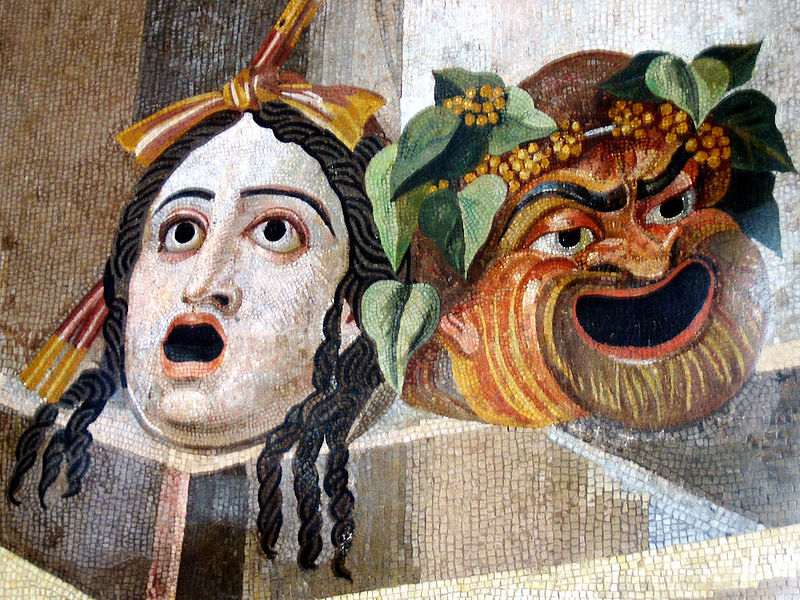
Although Rossini’s librettto clearly describes “La Donna del Lago” as a melodramma, perhaps it is actually a tragedy? How could it possibly be a tragedy when it ends in the joyous “Tanti Affetti”?
All one has to do is to look at the exquisite production from La Scala ( on DVD) and watch the character of Uberto, so brilliantly played and sung by Rockwell Blake to realize that perhaps not everyone is happy at the end. Although Uberto’s magnanimous gesture is central to the opera it is not unique. “La Clemenza di Tito” is a beautiful example known to many. There are others, but what makes
Uberto unique is that his gesture is a personal sacrifice, whereas Tito, for example gains personally ( he spares the life of his best friend) from his. Think of what happens when the curtain goes down. Elena and Malcom presumably live happily ever after. And Uberto? Does Rossini’s music give an indication?
We will share some of your opinions submitted on Twitter, Facebook and email ( info@rossiniamerica.org) Please share your thoughts.
This is the first “Topic of the Month” on Rossiniamerica.org. Feel free to propose topics as well as comment on the posted topics.
A return to the lake with Alberto Zedda

In connection with the Metropolitan Opera’s December 2015 performances of “La Donna del Lago”, we examine some aspects of this masterpiece with the help of an essay by Alberto Zedda.
Somehow, the miracle of this opera seems to elude even many Rossini lovers.
Perhaps some refelctions from Alberto Zedda can help us understand why. He expressed some thoughts on this work at the time of the 2001 performance in Pesaro Italy. Below are some of the excerpts from his essay.
Maestro Zedda writes that this opera “opens up an unknown landscape and develops new themes.”
“It is not an easy opera to revive even for the modern listener” he continues,”even though ( the listener) is familiar with such concepts as ambiguity, abstraction, and metaphor.”
Among other things Maestro Zedda singles out “ the prominent role entrusted to the orchestra
, different from that of the Italian composers who preceded Rossini, and whose only thought was to supply a practical support for the voice.”
The use of the hunting horn ( both off stage and on), the use of the band , the use of the harp, and the curious orchestration ( four clarinets among other things) creates a color and a sound which in itself makes this work unique.
The opening scene where Giacomo /Uberto comes upon Elena really defines the characters. Maestro Zedda observes, ” Radiant with the thoughts of love for her Malcolm, Elena’s simple and enchanting little song ‘Oh mattutini albori’ is pervaded with an elusive and subtle eroticism. When Giacomo asks her for help in finding his way, her reaction is one of unforced naturalness. After bringing him to her home, Elena and Giacomo ‘converse’ politely and their behavior is chaste and friendly, but the music invests their meeting with a sweet enchantment and a sickly tension so that no one is surprised when Giacomo’s heart succumbs to love.” Based on these observations it is safe to say that this is not a skirt-chasing King, nor a flirtatious, feisty young woman as some have unfortunately portrayed them (ed).
Giacomo learns that Elena is the daughter of his enemy and is betrothed to Rodrigo ( whom she does not love ) But, Zedda points out, “the anxious languidness that Giacomo’s presence has aroused in Elena’s childlike femininity gives him a ray of hope.
Elena, believes her restlessness is simply her longing to see Malcom again, and in all innocence she cannot help unconsciously exercising a fatally seductive charm.” The concluding duet between Elena and Giacomo is, in Zedda’s words, “one of Rossini’s prettiest dialogues of love, certainly the most sensual, the most loaded with passion…(Because) Elena’s ecstasy is aimed and Malcom and not at Giacomo, Rossini is free from any necessity to pain a direct encounter between lovers, and so is able to give full reign to his art without too much reserve. “
At this point Rossini has laid the foundation for the two principal characters and he is free to turn his attention to the third, Malcom.
Zedda writes. “ Malcom’s entrance aria ‘Mura felice’ is permeated with melancholy which his loving anxieties seek in vain to camouflage, he tells us of love’s enchantment. Our sympathy with his youthful enthusiasm warns us somehow that his destiny is not of the happiest.” Malcom, Zedda states, “ belongs to Romantic culture and his interpretative powers need to be enough to give emotion and presentiment to a cabaletta, the leading theme of which could easily become banal.. Malcom needs to give weight to Elena’s uncertainty and magnanimity to Giacomo’s renunciation.” It would seem that Malcom has the toughest job in this opera (ed)
Although we are just at the start of La Donna del Lago, this fundamental understanding of the characters has already been presented by Rossini ( and pointed out by Zedda)
Does one need to know these things to enjoy the opera? Certainly not. But hopefully the interpreters are aware and will use this awareness to give us memorable performances of this rarely heard gem. They certainly have the vocal credentials to do so.
ROF 2016 revised program.

There have been some changes to the program.The final performance of Ciro in Babilonia has been moved to the final evening of the Festival ( Aug 20) And the Florez gala has been moved up to the 19th.
In addition, Monica Bacelli will be giving the bel canto concert on Aug 17th
